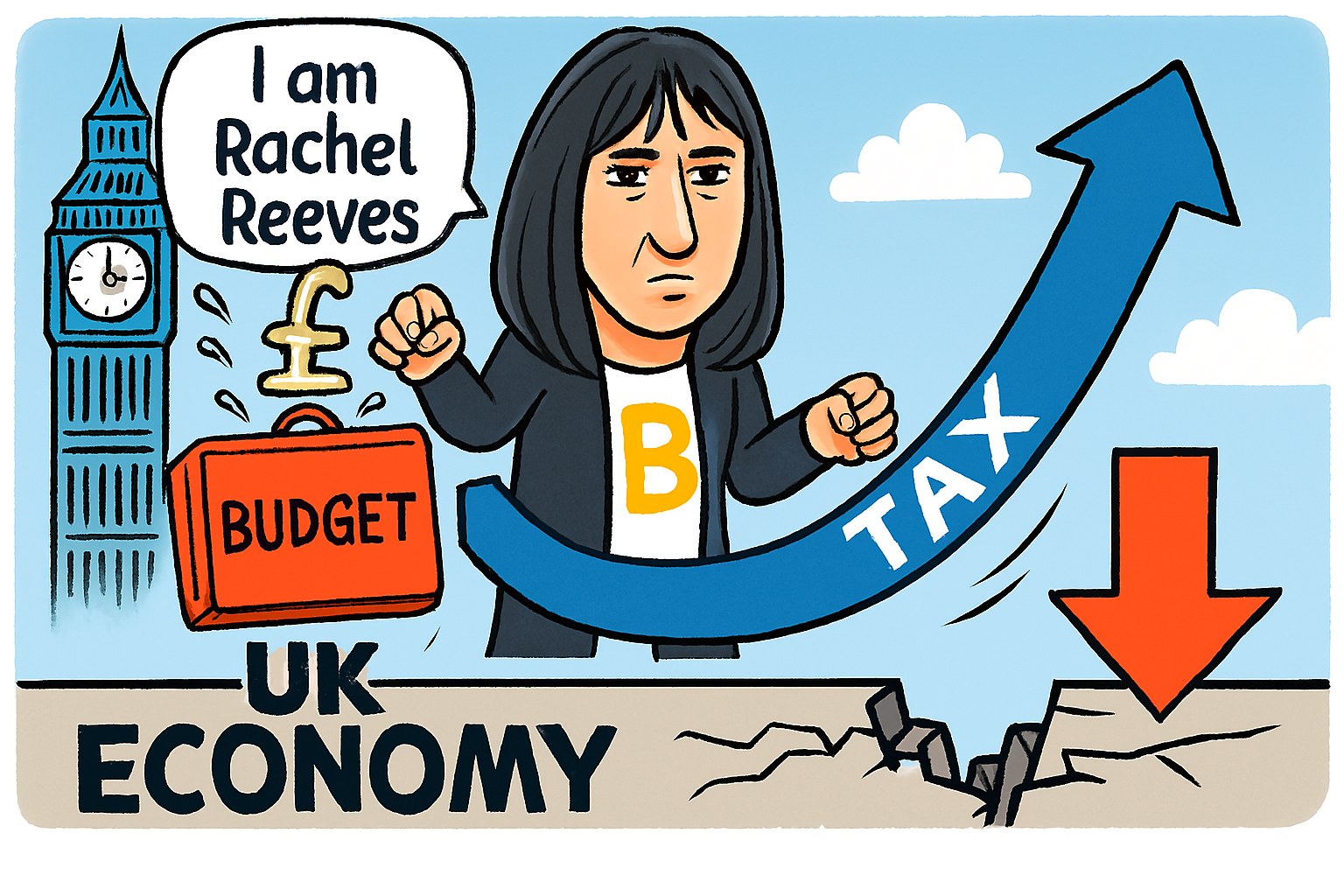The UK economy recorded modest growth in August 2025, expanding by 0.1% according to the Office for National Statistics (ONS).
This slight gain follows a revised contraction of 0.1% in July 2025, underscoring the fragile nature of the recovery as the government prepares for next month’s Budget.
Manufacturing led the charge, growing by 0.7%, while services held steady. However, consumer-facing sectors and wholesale trade continued to drag, reflecting persistent cost pressures and subdued household confidence.
Over the three-month period to August 2025, the economy grew by 0.3%, offering a glimmer of resilience despite broader concerns.
Chancellor Rachel Reeves faces mounting pressure to address a projected £22bn shortfall. It always appears to be a £20-22 billion hole – it must be a ‘magical’ figure.
She has signalled potential tax and spending adjustments to ensure fiscal sustainability, though uncertainty around these measures may dampen business and consumer sentiment in the near term.
Some economists have warned that slowing wage growth and elevated living costs are likely to constrain household spending, with sluggish growth expected to persist.
Meanwhile, the IMF forecasts the UK to be the second-fastest-growing G7 economy this year, albeit with the highest inflation rate.
As Budget Day looms, the government’s challenge remains clear: stimulate growth without deepening the cost-of-living strain.
Tax increases are coming, despite government manifesto promises to the contrary.


